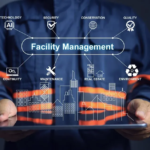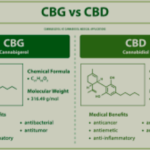Material management is the backbone of any organization’s supply chain, playing a critical role in ensuring that resources are available where and when they are needed. Efficient material management can significantly enhance business operations, reduce costs, and increase profitability. In this blog, we’ll explore the primary objectives of material management and their profound impact on business efficiency.
1. Ensuring Uninterrupted Supply of Materials
One of the core objectives of material management is to ensure a continuous supply of raw materials and components required for production. Any disruption in material availability can lead to production delays, resulting in missed deadlines and potential loss of revenue. Effective material management ensures that the necessary materials are available at the right time, preventing bottlenecks and maintaining the smooth flow of production processes.
2. Minimizing Material Costs
Cost control is a critical objective of material management. By optimizing procurement strategies, negotiating favorable terms with suppliers, and implementing efficient inventory management practices, organizations can minimize material costs. This not only reduces overall production costs but also enhances profitability. Efficient material management also involves maintaining optimal inventory levels to avoid overstocking, which ties up capital and increases holding costs, as well as understocking, which can lead to production stoppages.
3. Optimizing Inventory Levels
Balancing inventory levels is a delicate task. Material management aims to maintain inventory at levels that meet production demands without incurring excessive holding costs. Effective inventory management ensures that there is neither a surplus nor a shortage of materials, which can impact production efficiency and customer satisfaction. By using techniques such as Just-In-Time (JIT) inventory and Economic Order Quantity (EOQ), material managers can optimize inventory levels, reduce waste, and enhance operational efficiency.
4. Enhancing Quality Control
Quality is a non-negotiable aspect of material management. Ensuring that materials meet the required quality standards is crucial to producing high-quality finished products. Material management involves rigorous inspection and testing of materials upon receipt, as well as continuous monitoring throughout the production process. By prioritizing quality control, organizations can reduce defects, minimize rework, and maintain customer satisfaction, ultimately boosting business efficiency.
5. Improving Supplier Relationships
Building and maintaining strong relationships with suppliers is another important objective of material management. Reliable suppliers are essential for ensuring timely delivery of quality materials. By fostering good supplier relationships, organizations can negotiate better terms, secure favorable pricing, and ensure consistent quality. Strong supplier partnerships also contribute to the flexibility and resilience of the supply chain, enabling businesses to respond quickly to changing market conditions.
Impact on Business Efficiency
The objectives of material management have a direct and significant impact on business efficiency. By ensuring a steady supply of quality materials at optimal costs, organizations can maintain uninterrupted production, minimize waste, and reduce costs. Effective material management also leads to better inventory control, improved supplier relationships, and enhanced product quality. All of these factors contribute to higher productivity, reduced operational costs, and increased profitability, positioning the organization for long-term success in a competitive market.
Feel free to submit more guest posts through Links Building Servcies - Best Prices. Buy Author Account / 1$ Guest Post Here




















